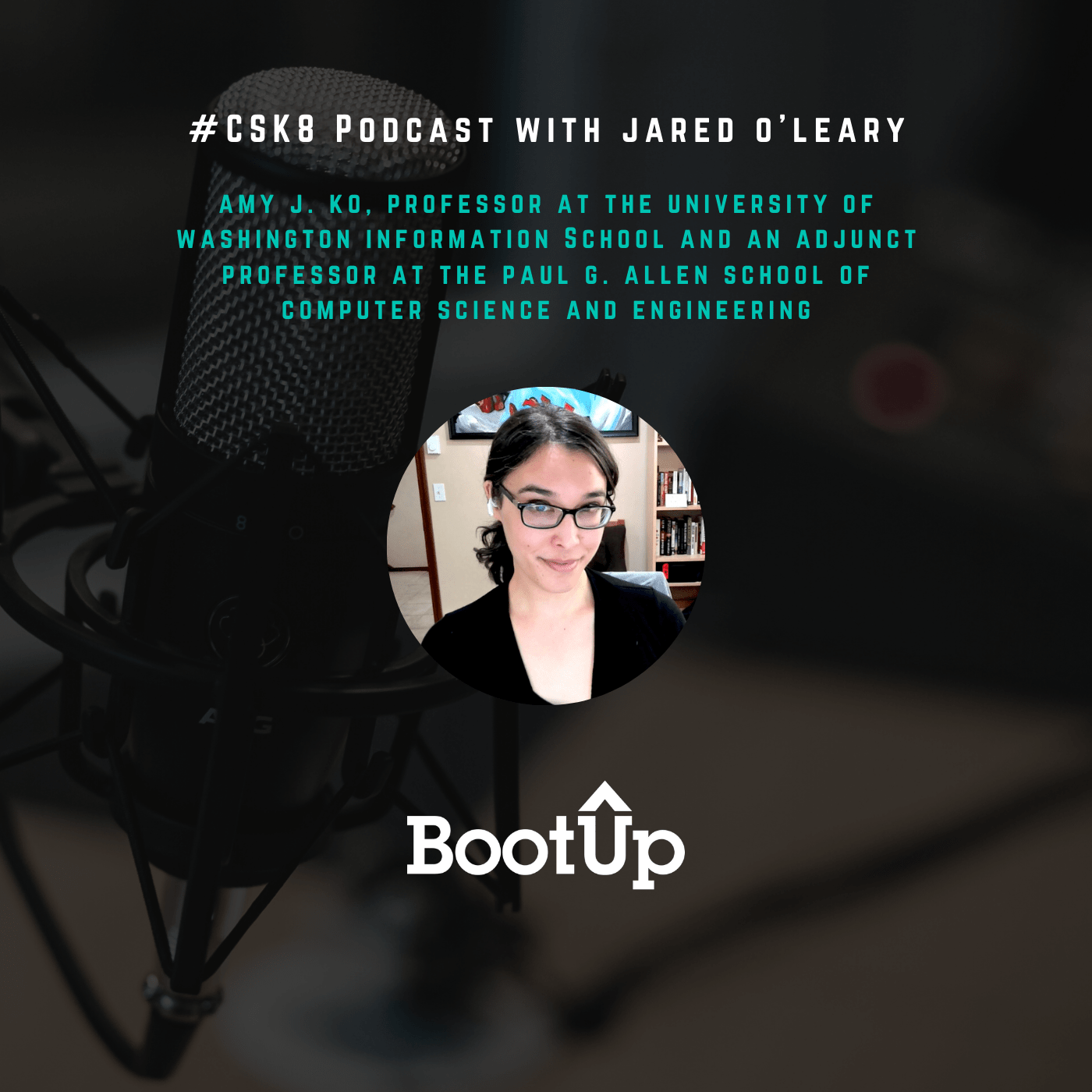#CSK8 Podcast

Healthy Boundaries with Siobahn Grady
In this interview with Siobahn Grady, we discuss the importance of self care and healthy boundaries, the impact of education, misconceptions and problematic assumptions people make with HBCUs, misconceptions and misunderstandings of being a professor in CS, lessons learned using machine learning to identify authorship of tweets, exploring the implications of social media and technology with students, the intersections of arts and CS, improving equity and inclusion in computing through action, and much more.

How Early Does The CS Gender Gap Emerge
In this episode Jared O'Leary unpacks Tsan, Boyer, and Lynch’s (2016) publication titled “How early does the CS gender gap emerge? A study of collaborative problem solving in 5th grade computer science,” which investigates the potential impact of gendered groups on the quality of completed Scratch projects in an in-school computer science class for 5th grade students.

Rhizomatic Learning with Catherine Bornhorst, Jon Stapleton, and Katie Henry
In this panel discussion with Catherine Bornhorst, Jon Stapleton, and Katie Henry, we discuss what rhizomatic learning is and looks like in formalized educational spaces, affordances and constraints of rhizomatic learning, how to support individual students within a group setting, standards and rhizomatic learning, why few people know and use rhizomatic learning approaches, how to advocate for and learn more about rhizomatic learning, and much more.

The Intersection of Gender, Race and Cultural Boundaries
In this episode Jared O'Leary unpacks Mellström’s (2009) publication titled “The intersection of gender, race and cultural boundaries, or why is computer science in Malaysia dominated by women?,” which “points to a western bias of gender and technology studies, and argues for cross-cultural work and intersectional understandings including race, class, age and sexuality” (p. 885).

Vulnerability, Reflection, and CS Education with Amy Ko
In this interview with Amy Ko, we discuss the importance of mentorship in education, learning what not to do with teaching, the positive results of being vulnerable, understanding and exploring the limitations and consequences of CS, problematizing grades in education, practicing teaching through mental simulations, the importance of engaging in the CS community, and much more.
